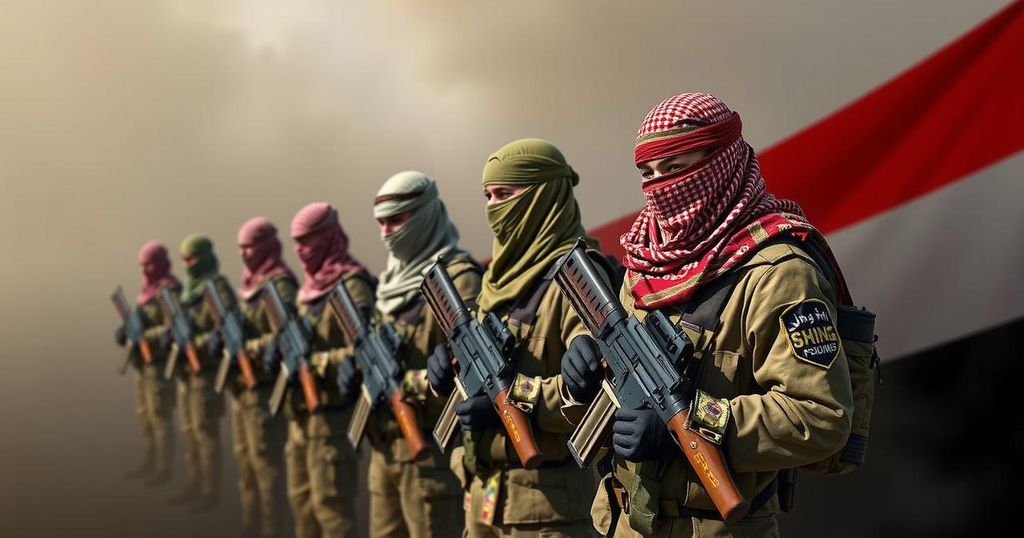Iran’s Support Transforms Yemen’s Houthis into a Military Force: U.N. Report

U.N. experts report that Iran has significantly enhanced the military capabilities of Yemen’s Houthi rebels, who have transitioned from a local armed group to a potent military force. Amid the Israel-Hamas conflict, the Houthis have aggressively targeted vessels in the Red Sea, indiscriminately impacting global shipping. Their forces have reportedly grown to approximately 350,000 fighters, with increased recruitment and sustained support from Iran and Hezbollah complicating the security landscape in Yemen and the surrounding region.
According to a recent report by U.N. experts, the Houthi rebels in Yemen have undergone a significant transformation, evolving from a localized armed group with limited capabilities into a formidable military force. This evolution has been significantly attributed to support from Iran, the Lebanese Hezbollah, and various Iraqi armed groups. These developments have been closely tied to the ongoing conflict between Israel and Hamas, with the Houthis seeking to strengthen their position within what Iran terms the “Axis of Resistance,” thereby enhancing their regional influence and gaining popularity. In response to the recent hostilities in Gaza, the Houthis have escalated their maritime operations, including attacks on merchant vessels in the Red Sea and the Gulf of Aden, purportedly to disrupt global shipping in favor of Iranian-backed Hamas. However, investigations by the U.N. panel revealed that the Houthis have indiscriminately targeted various vessels, with at least 134 attacks recorded between November 15, 2023, and July 31, 2024. The report highlights a notable increase in the scale and frequency of these attacks, a situation unprecedented since World War II. Furthermore, the Houthis have reportedly utilized a new ballistic missile, identified as the Hatem-2, in their maritime confrontations. The U.N. experts, comprising specialists from various countries, have noted increasing coordination between the Houthis and al-Qaida affiliates, with growing connections to the al-Shabab group in Somalia. The Houthis have been embroiled in an ongoing civil conflict with Yemen’s internationally recognized government since they seized the capital, Sanaa, in 2014, with little hope for peace following the recent escalation in violence. As advocated by U.N. officials, the conflict has now escalated into a broader international crisis, fundamentally altering the landscape of regional power dynamics. At present, estimates suggest that the Houthi faction comprises approximately 350,000 fighters, a marked increase from 220,000 in 2022. The remarkable expansion of their military capabilities has been largely facilitated through support from the Iranian Revolutionary Guard and other regional entities, enabling the Houthis to employ complex weapon systems that they are otherwise unable to produce independently. The panel’s investigations indicated unprecedented levels of military equipment and training transfers to the Houthis. This support has resulted in similarities between Houthi weaponry and that used by Iran and its allied forces. In addition to external military endeavors, the Houthis have intensified internal operations against the Yemeni government and have been implicated in the recruitment of vulnerable populations, including children and Ethiopian migrants, utilizing various coercive measures. Reports indicate a disturbing rise in child recruitment, particularly since the escalation of the Gaza conflict, with significant numbers of minors reported to have been coerced into combat roles and other military support functions. This alarming trend points to broader implications for regional stability and the humanitarian crisis in Yemen.
The ongoing conflict in Yemen has evolved significantly since the onset of civil unrest in 2014, particularly as the faction known as the Houthis, who follow the Zaidi branch of Shia Islam, overthrew the government. Their increasing strength has been directly correlated with support from Iran and other regional actors, which has raised concerns among international observers. The recent escalation in the Israeli-Palestinian conflict has provided the Houthis with a strategic context to enhance their operations and seek recognition in the broader geopolitical framework shaped by Iran’s influence. This context is essential to understanding the Houthis’ actions, their military capabilities, and their implications for international security.
In summary, the U.N. report underscores the dramatic transformation of Yemen’s Houthi rebels, highlighting their evolution into a potent military force facilitated by extensive foreign support, particularly from Iran. The escalation of their maritime aggression, strategic alliances with other militant groups, and concerning recruitment practices, especially among children, pose significant challenges to regional stability and humanitarian conditions in Yemen. The ongoing conflict, initially a localized issue, has escalated to a point where it has international ramifications, necessitating urgent attention from global powers to address the evolving crisis.
Original Source: apnews.com








